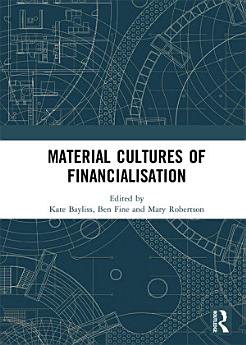Material Cultures of Financialisation
About this ebook
The chapters in this book were originally published in a special issue of New Political Economy.
About the author
Kate Bayliss is a Research Associate at SOAS, University of London and Research Fellow at University of Leeds, UK. For over two decades she has been conducting research into the nature and impact of privatisation in the provision of infrastructure and essential services, working with UN Agencies, governments and Civil Society.
Ben Fine is Professor of Economics at SOAS, University of London, UK. His books have won both the Gunnar Myrdal Prize and the Deutscher Prize. He Chairs the International Initiative for Promoting Political Economy (iippe.org).
Mary Robertson is Head of Economic Policy for the Leader of the Labour Party. She has a MSc and PhD in Economics from SOAS, University of London, and previously worked at Leeds University Business School and the University of Greenwich, UK.






